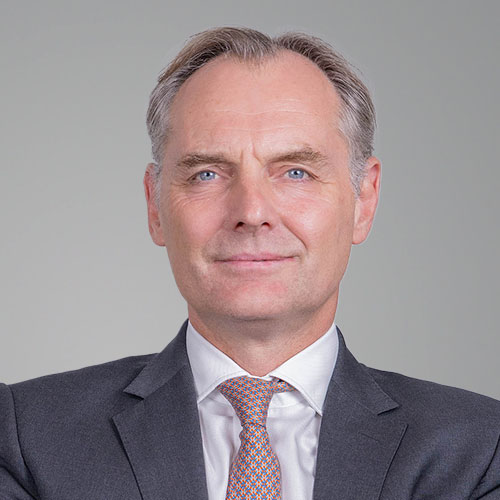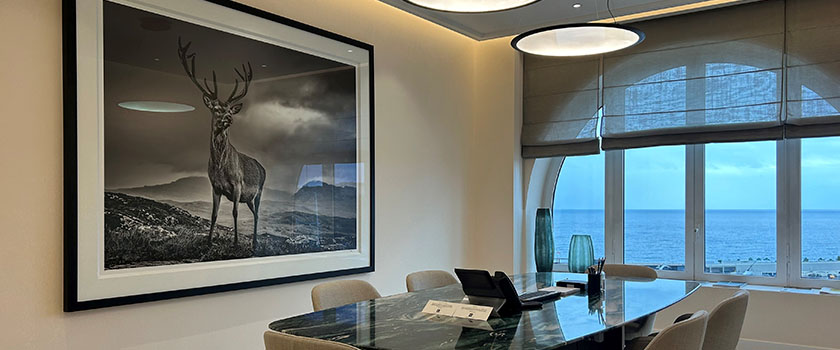The Swiss private bank is looking to expand its Middle East business by targeting new markets in the region.
Following a reshuffle of the upper management at Union Bancaire Privée (UBP) Middle East, the Bank is raising the stakes in the market to target its next phase of growth. UBP currently manages over USD 12 billion for its Middle Eastern clients and is seeking to double its size in the next five years, according to Mohamed Abdellatif, co-head of the Middle East and Africa (MEA) region.
“With strengthened governance in place, we are now ready to roll out our ambitious business plan in the region. Continuing to hire the best talents – both bankers and advisors – will remain our top priority in the coming months,” Abdellatif told Citywire Middle East.
Abdellatif assumed his new role on 1 January 2024 alongside Walid Shash, who has been driving UBP’s MEA strategy since 2005. In turn, Mohamed Shoukry succeeded him as the new CEO of UBP Middle East.
“We want to focus on the bigger picture of expanding our Middle East business by targeting new markets in the region and tapping into our asset management capabilities.”
UBP is currently assessing what would be the best way to expand in the area. Abdellatif continued, “We need to make sure that we have the best approach towards clients, whether institutional or private, and family offices. I am convinced that we will need to grow our employee footprint to achieve this goal.”
To meet the growing demand for sharia-compliant products, the Bank has formed its own sharia board and is focusing on offerings for institutions, private clients, and family offices.
Abdellatif went on, “This part of our business is critical to the growth of the Bank in the region.”
He further added that UBP is in the process of hiring for their family office advisory business and reshuffling its wealth planning services in the region.
Globally, the family-owned private bank is known for having completed numerous acquisitions to grow its business. Nicolas Faller, executive MD and co-CEO Asset Management at UBP, said, “We’ve made some acquisitions in Asia and Europe; however, not so much in the Middle East. The objective is to continue to grow, both organically and by carrying out more acquisitions if the right opportunity presents itself.”
In 2011, UBP acquired the Swiss arm of the Dutch state-owned bank, ABN AMRO, and in 2015 agreed to buy Coutts International’s client base from RBS. In 2018, it purchased the UK-based wealth firm ACPI, the same year in which it expanded in Luxembourg with the purchase of Carnegie Bank and later with the international wealth management business of Danske Bank.
Client demands
According to Faller, top-tier institutional clients such as pension funds have their asset allocations tilted towards fixed income, private markets, and hedge funds, saying, “Nowadays there’s no plan to increase equities. With the strong dislocation we had in 2022 in the fixed-income space, several opportunities emerged, from investment grade to high yield, local currency, hard currency, and private debt. Traditionally the Middle East has favoured fixed income.”
“Moreover, families in the region always look for tangible assets, which translates into owning real estate or hard assets in key locations in the UK or Europe.”
“One of the dominant trends that we are seeing among regional investors is their affinity for private markets, either semi-liquid or liquid depending on the risk appetite. We are witnessing a lot of private-market deals for regional clients in Europe and the US, as most of their assets are dollar-based.”
At the same time, Faller wants to seize the opportunities that hedge funds are offering given the current market conditions. Three years ago, the Bank launched a hedge fund investing in Japanese equities and, more recently, another one for emerging markets.
He added, “One of our key knowledge areas is hedge funds. We do everything from operational and investment due diligence, to portfolio management, reporting and trading. In the last decade, hedge funds did not deliver due to market conditions, and we’ve seen most of our competitors exit this business. I believe we are now one of the few banks equipped to provide clients with such extensive know-how in the liquid alternatives space.”










